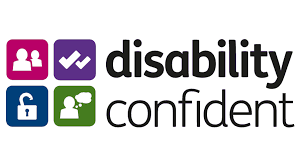The Power of Gratitude in Business

In the fast-paced world of business, it's easy to get caught up in the hustle and bustle, constantly striving for the next milestone or goal. However, amidst the deadlines and challenges, there lies a powerful tool that can significantly impact your success—gratitude.
This Thanksgiving, we look at some key benefits of cultivating a thankful mindset in the world of business:
1. Positive Workplace Culture
Expressing gratitude fosters a positive and appreciative workplace culture. When team members feel valued and recognized for their contributions, morale and motivation soar. This positive atmosphere creates a collaborative environment where individuals are more likely to go above and beyond in their roles.
2. Enhanced Employee Engagement
Employees who feel appreciated are more engaged and committed to their work. Gratitude from leaders and colleagues validates their efforts, instilling a sense of purpose and loyalty. Engaged employees are not only more productive but also contribute to a healthier bottom line for the business.
3. Improved Relationships
Building strong relationships is crucial in business. Expressing gratitude towards clients, partners, and colleagues strengthens these connections. People are more likely to collaborate and continue working with those who show appreciation, leading to long-lasting and mutually beneficial relationships.
4. Resilience in the Face of Challenges
Business is inherently filled with challenges and setbacks. A thankful mindset can provide a buffer against stress and adversity. When facing difficulties, focusing on what has been accomplished and expressing gratitude for the resources at hand can inspire resilience and creativity in finding solutions.
5. Innovation and Creativity
Gratitude encourages a growth mindset, fostering an environment where new ideas are welcomed. When individuals feel appreciated for their contributions, they are more likely to share innovative thoughts and take risks, knowing that their efforts are valued by the organization.
6. Customer Loyalty
Businesses that express gratitude to their customers build strong brand loyalty. Whether through personalized thank-you notes, exclusive offers, or special recognition, showing appreciation to customers creates a positive perception of the brand, leading to repeat business and positive word-of-mouth.
7. Personal Well-being
Business success is not solely measured by financial achievements. Being thankful in business contributes to personal well-being. It reduces stress, improves mental health, and creates a more fulfilling and enjoyable work experience.
It might not always feel possible, especially when times are tough, but incorporating gratitude into the fabric of your business is not just a nicety; it's a strategic move that pays dividends in the long run.
By fostering a culture of thankfulness, you not only enhance the well-being of your team but also set the stage for sustained success and growth in the competitive world of business.





